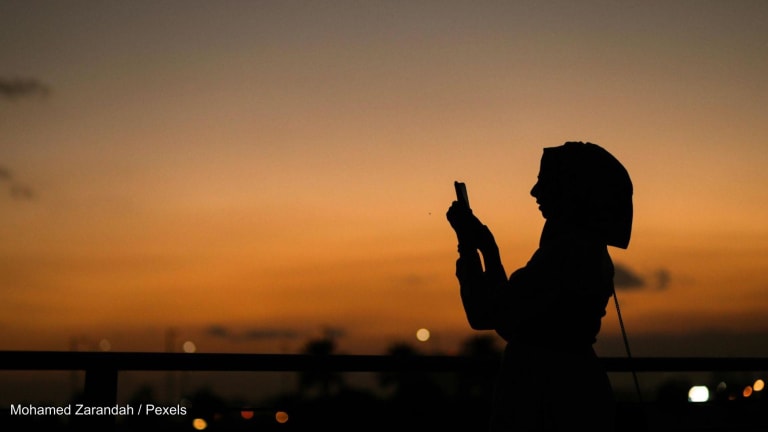
In a 2017 photo, smiling kindergarten children play with colored blocks. In another shot, students take part in a public health class. In yet another photo, a handful of teenagers pore over books. These images illustrate an array of U.S. Department of Agriculture McGovern-Dole Food for Education programming in schools across Burkina Faso, reminding us of the joys of education and our collective investments in it.
Yet three years later, at least 144 schools — approximately 15% of our McGovern-Dole programming in Burkina Faso — are closed due to insecurity. That means thousands of students are out of the classroom, threatening the strides we’ve made to improve literacy rates and decrease childhood malnutrition.
As the world turns its attention to other things, a long-simmering conflict in the Sahel region of West Africa has become catastrophic. The fighting has spared no one, forcing those lucky enough to survive the clashes to abandon their homes by the millions, creating the fastest-growing humanitarian crisis in the world. The cruelest irony is that our development gains and investments could be set back or even erased if the trend toward violence continues.
The Sahel Peace Initiative
In November 2019, the West African Catholic Church, with support from CRS, launched the Sahel Peace Initiative, which provides vulnerable communities across four countries with lifesaving support, such as food, shelter, and water. What’s more, fraught communities are engaged in integrated peacebuilding activities that teach coping skills while fostering hope and well-being. Overarching objectives include fundraising, advocacy, and public awareness efforts.
As the head of Catholic Relief Services, my work has brought me to the Sahel many times, and while some have painted the Sahelian crisis as religious or ethnic, what we've found via our new conflict analysis, “Steps Towards Peace,” is that glaring disparities in wealth and resources are at the root of the fighting.
Three of the Sahel countries — Niger, Burkina Faso, and Mali — rank near the bottom of human and economic development scales. The majority of Sahelians live below the poverty line without formal education and skill sets to ascend the economic ladder. Even more alarming is the wealth gap that's grown over our-more-than six decades in the region. Approximately 1% of West Africans hold more wealth than everyone else combined. The coronavirus-imposed government lockdowns, though well-intentioned, have exacerbated these disparities.
Similarly, the climate crisis has a tremendous impact as temperatures in the Sahel are rising at a rate of 1.5 times higher than the global average. In a region that's almost exclusively reliant on agriculture, this dramatic rise in temperature drastically impacts crops. The exhaustion of the soil, erosion, and frequent drought and flooding have made farming and livestock production even more precarious and unpredictable.
While governments have recognized the critical importance of investing in the Sahel — most recently by pledging $1.7 billion to scale up humanitarian aid — more needs to be done to stem the violence. To date, the international response has focused on militarized security and counter-terrorism efforts, but we propose a more holistic societal and peace-driven approach to the conflict.
To get there, we need donors to better integrate social cohesion and peace-building elements into humanitarian and development programming. In the Gao region of Mali — an area rife with violence — a 39-year-old community leader recounted how our social cohesion project, which includes trauma awareness activities, improved relationships so that his community could manage its resources without conflict.
How to tackle the crisis
We should better leverage religious leaders and traditional chiefs who are committed to peace and social cohesion and are generally viewed as the most respected, neutral, and trustworthy parties.
Traditional conflict management mechanisms are still valued and perceived as essential. And we must leverage grassroots networks to ensure that local community voices are heard. This will help bring women and youth voices to the table while further promoting inter-faith and cross-cultural collaboration. In November 2019, the Catholic church in West Africa, with support from CRS, launched the Sahel Peace Initiative to promote such locally led peace-building activities and respond to the millions of people displaced from their homes without livelihoods or enough food.
Youth, who account for more than half the population, are among the most affected by this crisis. During our analysis, we heard how an overall sense of hopelessness — especially among those ages 15 through 25 — is driving some to abandon agriculture and seek fortunes elsewhere. Ultimately, jihadists and organized crime groups exploit these vulnerabilities to recruit and achieve their goals. Policymakers should fund programs that consider the context of youth disempowerment and seek to identify and address root causes and grievances. We believe that all young people, even those surrounded by violence, can affect change.
The greatest untapped resources in the Sahel are its people. If we make smarter investments in local communities by addressing inequality and through greater inclusion of women, youth, and faith, and traditional leaders in planning for the future, we can turn things around. The moment will come when families will be able to return home. Schools will be reopened. And the region will find its way back toward lasting peace. Our time to act is now.
Read our full Sahel conflict analysis, which details our findings, conclusions, and recommendations.




